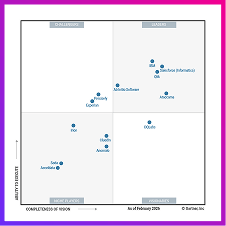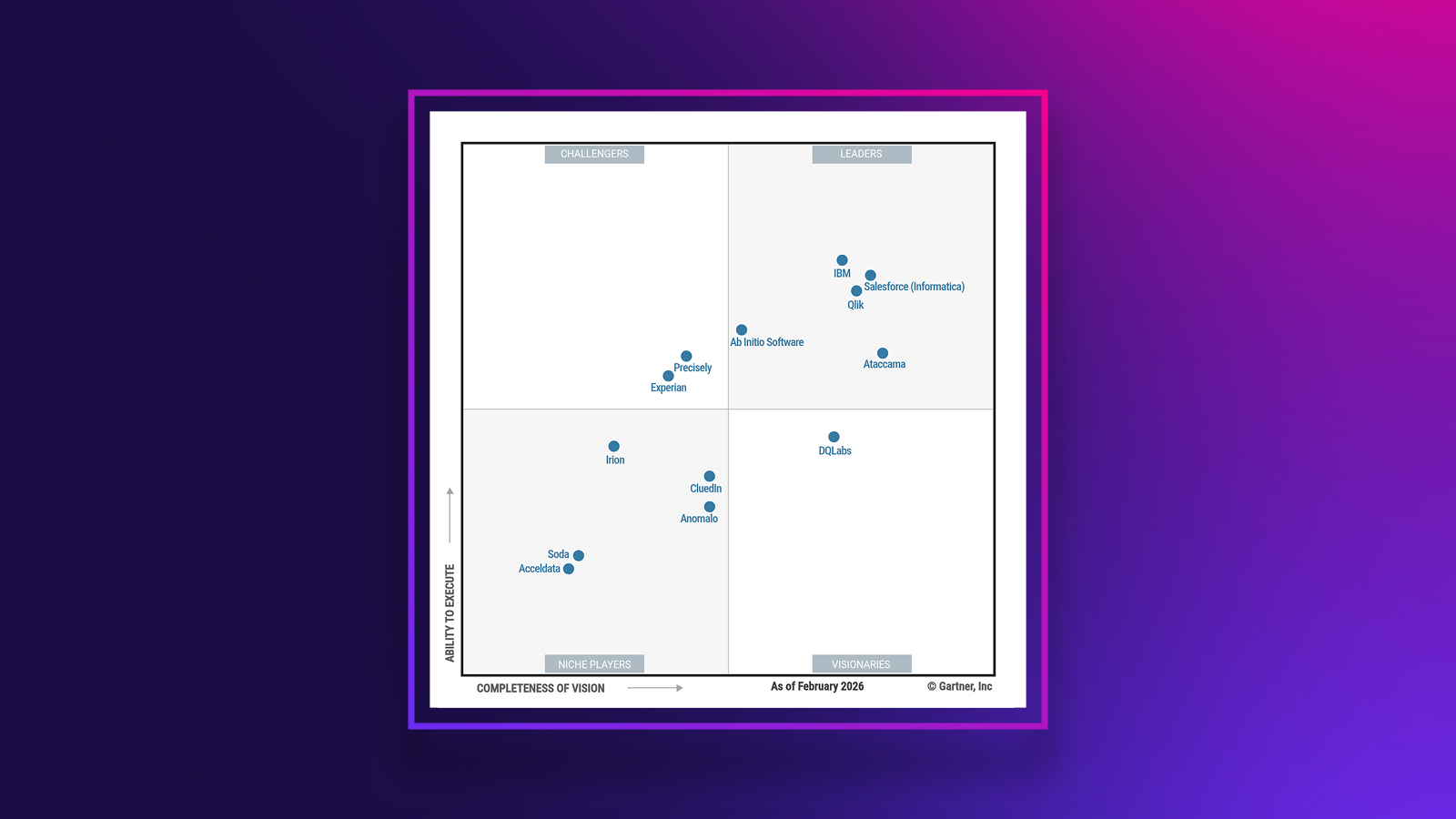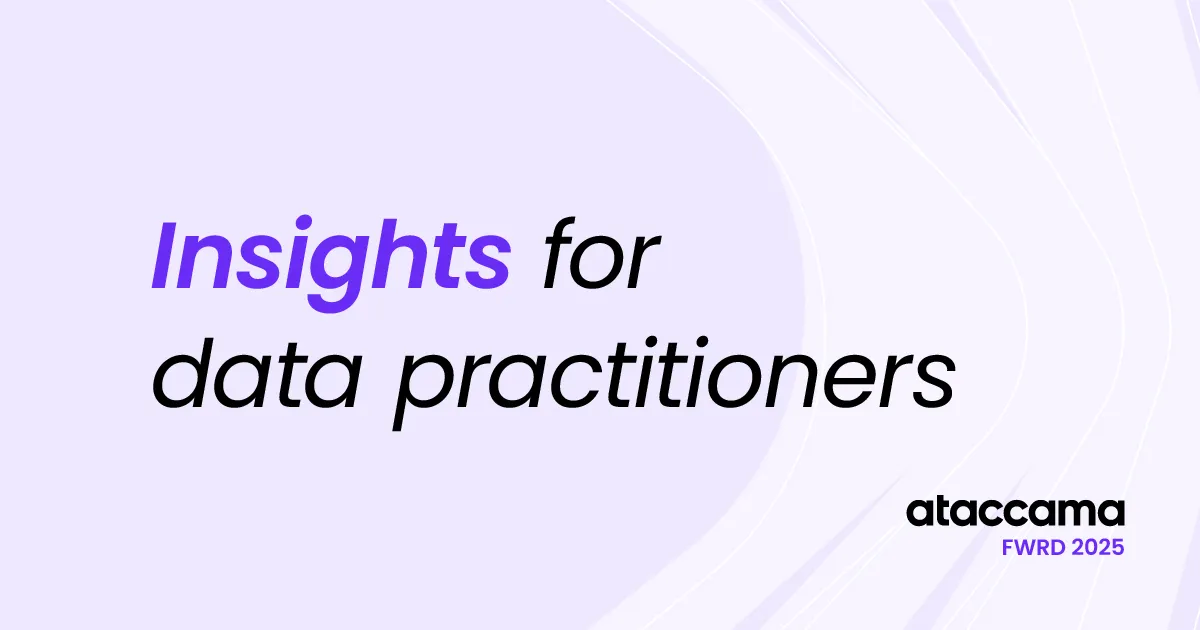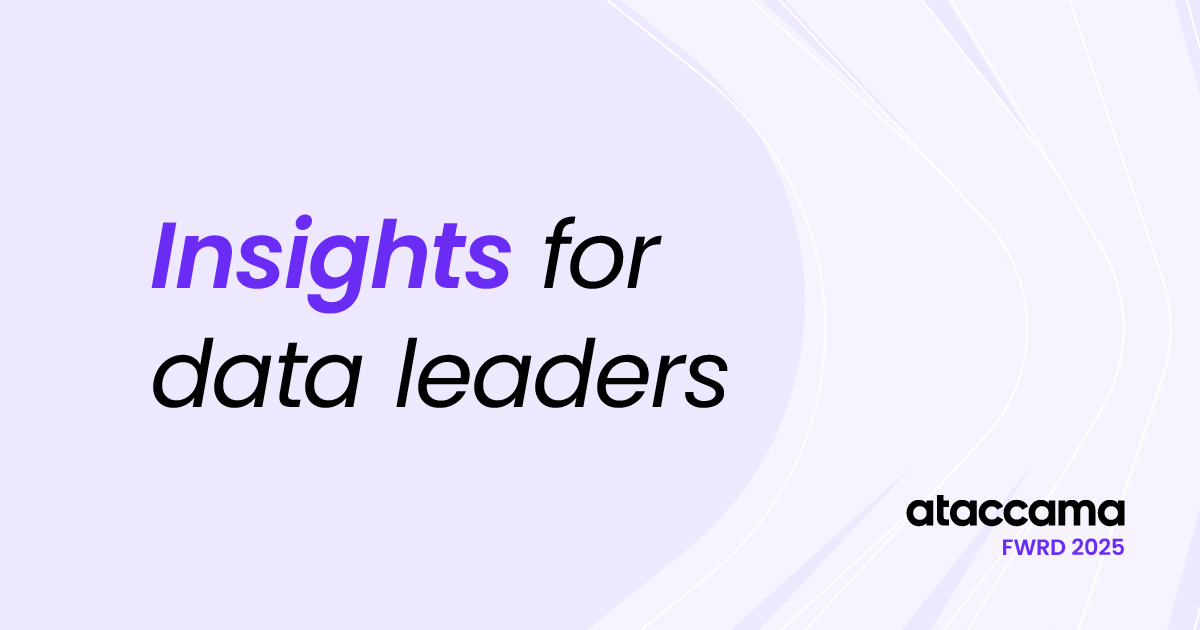Why data trust, not vendor consolidation, decides AI success

Mike McKee
I recently wrote about Salesforce’s acquisition of Informatica and ServiceNow acquiring data.world – two moves that signaled more than just market activity. Since then, the trend has only accelerated. Snowflake is acquiring Crunchy Data. Databricks is picking up Neon, a serverless Postgres provider.
These aren’t isolated deals. Enterprise platforms are no longer content to serve just one part of the data stack – they want to own the entire journey, and in doing so, become the backbone of enterprise AI. Snowflake and Databricks are making similar moves, acquiring Postgres providers and building out governance capabilities, to offer end-to-end control under one roof.
This isn’t just consolidation – it’s a strategic convergence of capabilities. And it deserves a closer look.
Because this moment isn’t about who owns which tool. It’s about what all these vendors are racing toward: end-to-end control of the data lifecycle. And they’re right to aim high. Agentic AI is no longer theoretical. It’s already shaping underwriting decisions, powering customer experiences, and flagging real-time risk.
But none of that works without trust. And trust doesn’t come from consolidation alone.
That’s why this shift matters- not just to CDOs, but to CEOs and business leaders responsible for outcomes. The question isn’t “Do we have the right tools?” It’s “Can we trust the data driving our decisions?”
Because that trust is what separates experimentation from execution, and ambition from scale.
Monolithic platforms, new silos
With consolidation comes risk, specifically, fragmentation in how data is governed and trusted. We’ve seen this before. Data silos once fragmented truth across departments. Now, governance silos risk doing the same at a higher level.
Each platform brings its own definitions of quality, its own policies, its own version of the truth. You haven’t gained control, you’ve multiplied complexity. Rules conflict. Visibility breaks down. And when AI depends on that fractured foundation, the stakes are no longer technical; they’re business-critical.
Take an insurer using Salesforce for customer engagement, ServiceNow for workflows, and Snowflake for analytics. Each platform may soon include its own governance tooling and “single source of truth” claims. But are they aligned? Likely not. The more control platforms try to exert, the more fragmented the trust layer becomes. That’s the dilemma: do you buy into a single vendor’s ecosystem, or design for openness and consistency across the stack?
Not all data will ever live in a single platform. That’s why trust must be handled differently. It can’t be just another feature within one vendor’s toolset. It has to be independent, interoperable, and above the stack. For governance and trust to truly work, you need a platform-neutral foundation that travels with the data, wherever it resides.
Most CDOs and business leaders I speak with aren’t interested in lock-in. They run on a mix of platforms, and that flexibility is a strength. But every system brings its own lens on data. What business leaders want is consistency: one standard for trust, one set of definitions, one way to govern, regardless of where data lives.
Because if your governance stops at the edge of a platform, the silo hasn’t gone away. It’s just been rebuilt higher up the stack. And now, the risk isn’t just operational lag, it’s AI acting on faulty inputs, leading to poor decisions, regulatory exposure, or reputational damage.
Data trust without borders
To truly capitalize on AI, data trust must be ubiquitous – it must span all platforms, all clouds, and all parts of your business. This means our approach to data quality, governance, and transparency has to be open and interoperable. Even the big platform providers acknowledge this in principle. (Databricks CEO Ali Ghodsi said it plainly at their Summit: “governance needs to go across all data, unified across every use-case” – a vision easier stated than implemented inside a single vendor’s product.) In a modern enterprise, you likely have a mix of on-prem systems, multiple cloud services, and SaaS applications. Your AI initiatives – whether it’s a customer-facing chatbot, an internal process automation, or advanced analytics – will touch many of these systems. Trust can’t be an add-on afterthought; it has to be a layer of its own, ensuring that no matter where data flows, it remains accessible, correct, and compliant.
This is especially true in highly regulated and data-intensive industries. A global bank might run its core banking on one system, customer analytics on Snowflake, and risk models on Databricks. If each of those uses a different governance engine, how does the CDO confidently answer a regulator’s questions about data lineage or quality? True data trust means having a unified view of governance – one place to define policies, track lineage, and evaluate quality – even as data moves across myriad platforms.
The goal is federated trust: no matter if the data is in a CRM, a data lake, or a legacy database, you apply the same standards and can trace every piece of information’s journey. Only then can an AI agent operate with full context and your team act with confidence.
The agent of data trust
At Ataccama, we’ve made it our mission to be the agent of data trust in this landscape. We’re not here to own your data or replace your preferred platforms – we’re here to help you trust your data, everywhere it lives. In a multi-cloud, multi-platform world, we believe neutrality is key. Just as a clearinghouse ensures all parties operate from the same standard in finance, Ataccama ensures every system operates from the same definition of trust.
Our platform unifies data quality, governance, lineage, catalog, master data management, and observability into a single layer that can overlay any ecosystem. It doesn’t matter if data flows through Salesforce, Snowflake, or an on-prem ERP – Ataccama tracks it, improves it, and validates it consistently.
Crucially, our platform is open and API-driven, designed to play nicely in the sandbox with others (in fact, we partner with Salesforce, Snowflake, Databricks, and many more). It manages rules and metadata, and uses AI to automate quality checks and anomaly detection. This results in a trusted foundation that isn’t locked to one vendor, it travels with your data.
In practice, what does this look like? Let’s explore a quick hypothetical:
Imagine a multinational bank embracing a cloud-first strategy. They use Salesforce for CRM, Snowflake as their data warehouse, and Databricks for AI model development. Each platform has its own governance setup. Individually, they work, but they don’t coordinate. The bank’s CDO sees the cracks: data in Salesforce is governed differently than analytics; quality metrics are inconsistent; duplicates exist because master data isn’t synchronized.
An AI agent pulls a “single view of customer” that doesn’t match what the risk model sees. A classic trust issue. To fix this, the bank deploys Ataccama. Our platform connects across all systems—Salesforce, Snowflake, Databricks, and on-prem. It catalogs data assets, builds a shared glossary, and enforces common quality rules. Discrepancies are flagged everywhere. A master record is governed through MDM, ensuring consistency across systems.
When the bank launches a new AI agent for cross-sell offers, it pulls from a trusted, unified view. The result: higher conversions, lower risk, and confidence in every decision. Trust isn’t trapped in one system—it’s embedded across the business.
Now, when the bank rolls out a new AI agent to personalize cross-sell offers, the agent pulls from a unified, trusted view of the customer. The result is higher conversion rates, lower risk, and confidence that every AI-driven decision (like offering a loan or flagging fraud) is based on reliable, up-to-date data. The bank’s CEO sleeps better at night knowing that trust isn’t confined to one application – it’s pervasive.
Lead with trust, win with AI
This shows the path to successful AI is grounded in trust. The current wave of platform consolidation underscores how vital data has become, but it also serves as a reminder that owning the tools is not the same as ensuring trust.
In fact, if you’re not careful, you could end up with shiny new AI platforms that don’t agree on what your data means or whether it’s reliable. The winners in this next chapter of business will be those who break through the silos, old and new, and insist on a holistic, open approach to data trust.
In practice, that means as a business leader you should ask: Does this AI initiative have a trusted data foundation across our organization? Are we governing data in a way that every stakeholder, every system – human or AI – operates from the same truth? If the answer is no, then no amount of consolidated platforms will save you from confusion, inefficiency, or worse, an AI making rogue decisions on bad data.
The good news is that an open, unified data trust layer makes this possible without forcing an all-or-nothing bet on a single vendor. It’s the best of both worlds: you leverage the innovation coming from giants like Salesforce, Snowflake, Databricks, and ServiceNow, and you ensure a common fabric of trust runs through all of it.
Business leaders who win in AI won’t just adopt the coolest tools, they will lead with trust. So as you plan your next AI project or consider the next big platform purchase, remember to plan for data trust with the same zeal. The companies that succeed will be those that embed trust as a strategy, not a slogan. Lead with trust, and the tools will follow, and so will sustainable, transformative AI success.
Onwards and upwards!
Mike
Mike McKee
Mike is the CEO at Ataccama, appointed in August 2023, with 30 years of leadership in data- and AI-driven companies—most recently as CEO of Dotmatics and ObserveIT (now Proofpoint) and in senior roles at Rapid7 and PTC. A former pro hockey player and father of four, he still enjoys hockey, and being active with family and friends.








